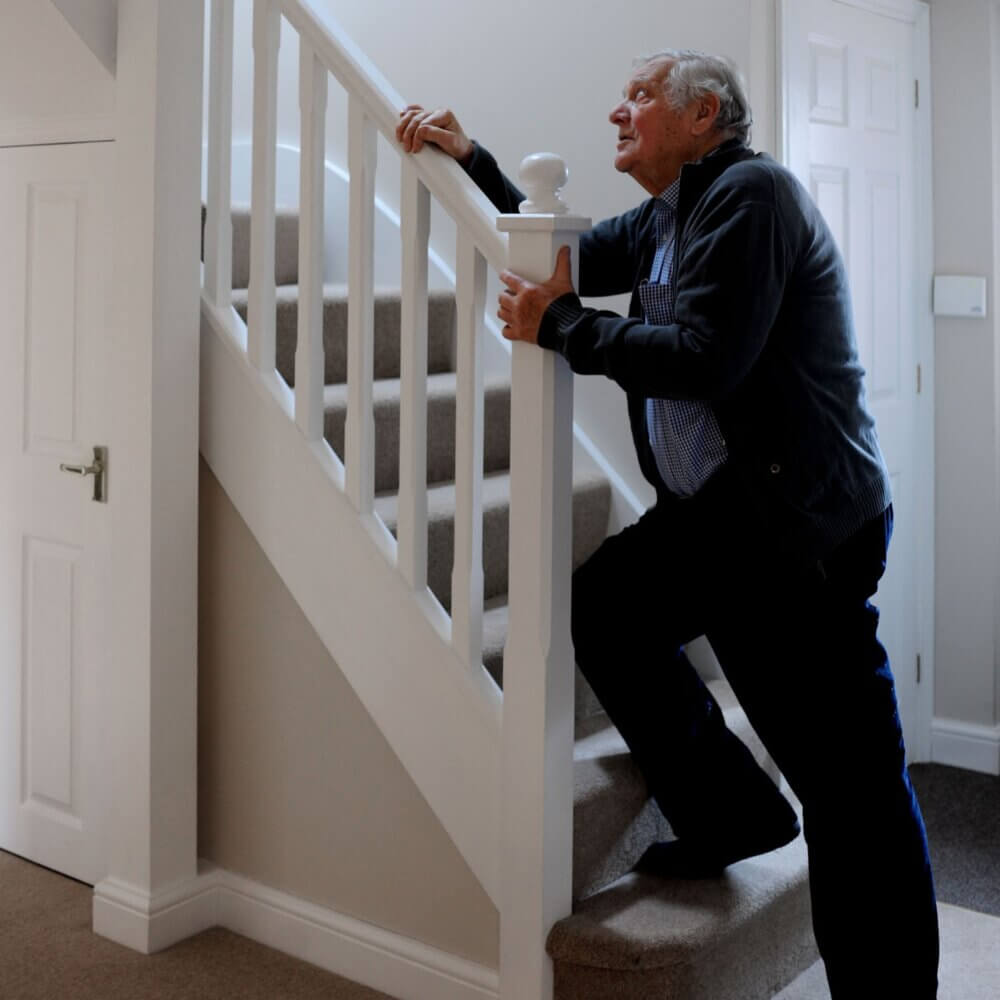Relieving bed blocking and supporting safe discharge
Discharge from hospital should feel like a relief for those coming home, their families, friends, and carers. Safe discharge is fundamental to the health and care patients.

Hospitals throughout the country are reporting significant pressure with bed occupancy through the winter months. Although NHS discharge teams work to develop a plan including practical and healthcare measures to support the continued recovery of individuals discharged to their own homes, a large contributing factor to bed blocking with older people is readmission. Even if an individual is deemed as medically fit to be discharged, they may not be ready to cope with living at home independently, particularly after a prolonged hospitalisation. At Home Instead Gloucester and The Forest of Dean, we’re doing all we can to support clients to be safely discharged from local hospitals.
Supporting safe discharge
To support someone to live at home safely and independently, its essential to have a care plan in place before they even set foot in a discharge lounge. Whether we’ve known a client for years, or somebody new has reached out to us, our Registered Care Manager meets every client at least once in hospital before their discharge journey begins. This allows a detailed care plan to be made, involving the client every step of the way. The client’s health, mobility and support needs are assessed alongside the discharge team to reduce the risk of unsafe discharge.
Our Registered Care Manager will also visit the client’s home before the service starts to assess that they will be surrounded by a safe environment that promotes their wellbeing, and they have all the equipment and supplies they need to continue to recover and live safely at home. A speedy discharge is not always a safe one, as “being discharged without proper support is an invitation to relapse, a worsening of their condition and re-admission” according to The King’s Fund. Involving an individual and their loved ones in their discharge and care plan is fundamental to ensuring they come home and continue to live at home as safely as possible.

A safe home environment
An underlying factor to safe discharge is a safe home environment. Older people’s mobility is often affected by staying in hospital and they may need additional equipment at home to allow them to continue their daily routines independently. Working with occupational therapists and community teams, we help to ensure equipment is in place before our clients reach their homes, and that our team of Care Professionals are trained and competent to support the client to use it.
An assessment of the client in hospital also helps to identify if there may be any mobility challenges once they reach their home. They may lack confidence if they were hospitalised due to a fall, or need a grab rail to safely step into the shower. Talking to the client and their loved ones can help identify these needs before they arise in the home. This, combined with a home risk assessment, reduces the risk of re-hospitalisation.
Each of our clients has a dedicated team of Care Professionals who visit them on a regular basis and build trusting relationships. This allows them to pick up on any little changes in the client’s mobility, health and wellbeing. These changes can be raised with loved ones and medical professionals so that practical interventions can be made before the changes become a problem that could result in hospitalisation.
An Age UK report states that “In 2019/20 alone there were 855,000 emergency admissions to hospital of older people which could have been avoided with the right care at the right time.” Noticing any changes and acting upon them quickly can be pivotal in whether an older person becomes admitted or re-admitted to hospital and can be key in working with healthcare professionals to ensure they receive the adaptations and support they need to continue to live safely at home.

Combatting loneliness
Some older people may be resistant to be discharged from hospital because they are scared of going home to an empty house. Sometimes, hospital discharge can be delayed which can put stress on both the individual and the hospital. We’ve supported clients who we have met at the door to greet them from hospital transport, or even arranged to collect them from hospital to make sure they reach home in comfort with a familiar face.
Depending on the length of their hospital stay, an individual may be coming home to an empty fridge, an unmade bed, or a cold home. Being discharged from hospital can be exhausting and the thought of coming home to lots of housework is daunting. Our Care Professionals understand that something as simple as getting in a weekly shop or making sure the shower is hot can have a huge impact on the success of hospital discharge.
Confusion can also occur if an older person is discharged to an empty home. Quite often, medication is changed during a hospital stay and people may not be sure how they work with their other medication schedules. This confusion can lead to an increased risk of medication errors occurring. As part of our care plan, we work with our clients and their medical teams to manage medication administration and support with medication needs, whether it’s chasing up a prescription, helping get clarity on changes, collecting medication, opening tricky packaging, or administering medication. Having someone to help with medication can be a huge relief to both clients and their loved ones and can greatly reduce the risk of medication being mis-administered.

Working together with clients, their loved ones, healthcare professionals and community teams allows older people to access the care they need to allow them to thrive at home, and importantly, greatly reduces their risk of hospitalisation. Safe discharge for those who have been hospitalised is fundamental to reducing the risk of readmission, therefore relieving the strain of bed blocking on local hospitals. Having a familiar, reliable Care Professional visiting at home relieves the worries and stress of coming home after a hospital stay and contributes to the holistic health of older people in our local community.